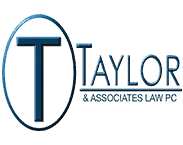Understanding The H1-B CAP, H-1B Fiscal Year, H-1B Registration, And H-1B Lottery
The H-1B visa program allows US companies to hire foreign workers in specialty occupations. However, the H-1B program is subject to an annual cap, which has made it difficult for some employers to obtain the visas they need.
H-1B Cap
The H-1B program is subject to an annual cap of 65,000 visas, with an additional 20,000 visas available for those with a master’s degree or higher from a US institution. This cap applies to the number of visas issued each fiscal year. However, certain employers, such as nonprofit research organizations, are exempt from the cap.
H-1B Fiscal Year
The H-1B fiscal year runs from October 1st to September 30th of the following year. Each fiscal year, the US Citizenship and Immigration Services (USCIS) begins accepting H-1B petitions on April 1st for employment that will begin on October 1st of the same year. Employers can file H-1B petitions up to six months before the requested start date.
H-1B Registration
Starting in 2020, the USCIS introduced a new H-1B registration system. Employers are required to register electronically for each foreign worker they want to sponsor for an H-1B visa. The registration period typically runs from March 1st to March 17th. The USCIS then conducts a lottery to randomly select the number of registrations that exceed the H-1B cap.
H-1B Lottery
When the number of H-1B registrations exceeds the cap, the USCIS conducts a lottery to randomly select the number of registrations that will move forward in the H-1B application process on March 17th. The lottery is conducted for both the regular and master’s caps. The USCIS notifies employers whether their registrations were selected, and those who were selected can then proceed with filing their H-1B petitions.
By working with an experienced immigration attorney, employers can navigate the complexities of the H-1B program and increase their chances of successfully obtaining the visas they need. If you are an employer seeking assistance with H-1B visa sponsorship or navigating the complexities of the H-1B program, contact our experienced immigration attorneys at Taylor and Associates Law P.C. in Brooklyn today.











